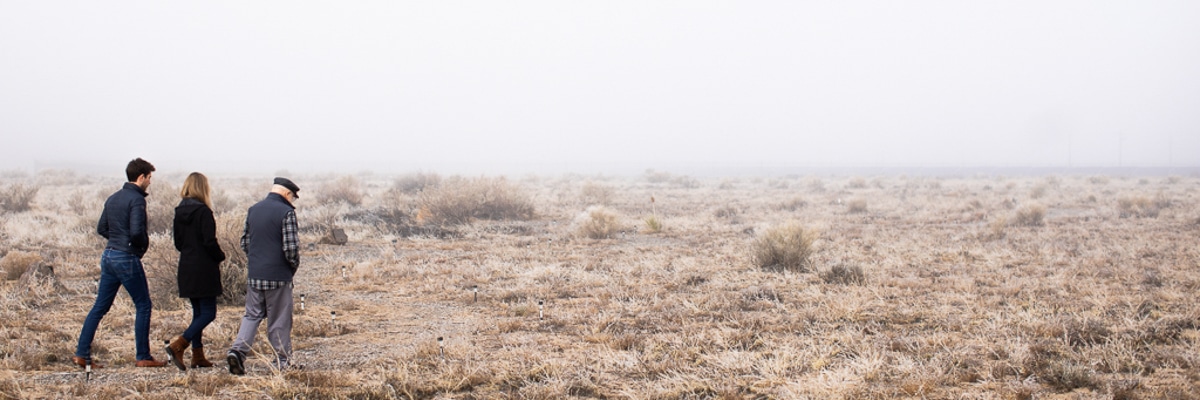
We’re either going to flock and circle with older generations that are trying to hold on to what they have and defend what they’ve done, or we’re going to join with younger generations and with their desire to take these issues seriously because their entire future is going to unfold in a climate-changed world.
—Brian McLaren
In a recent online gathering, CAC staff member Jennifer Tompos invited Living School affiliate faculty member Carmen Acevedo Butcher to reflect on the role of mentors in developing resilience:
Tompos: I think one of the things that is so important when we’re … figuring out how to show up with courage and resilience is how do we talk about this with the younger generation?… I aspire to be somebody who is a part of the solution and giving willing handoffs to the next generation. Carmen, [as a teacher of undergraduates,] can you speak to what the conversation is like with younger generations? How are they exhibiting the courage to show up in the face of everything that we’re facing, [particularly with] economic and ecological overshoot?
Acevedo Butcher: I am so glad you’re bringing up Gen-Z and Gen-Alpha because they feel grief … and I feel it with them. A few days ago, I was rereading “Appendix Five: Talking to Children About Our Current Situation” in Brian McLaren’s book Life After Doom. I began to cry because of the grief, and my students also feel it. I think it’s so important to sit with this uncomfortable conversation [with them], because many come from very difficult backgrounds: first generation students, low socioeconomic status, various disabilities. They feel anger at the older generations for our platitudes and obtuseness, and I listen. I’ve even heard myself in class say, “I just want to apologize for how we were not on this, and y’all have inherited such a mess, so many difficulties.” Then there’s this intergenerational dialogue that takes place.
One of the things that I appreciate from my students is that they are not in denial, and they are not frozen. They are really inspirations to me. Greta Thunberg thundered, “I don’t want your hope. I don’t want you to be hopeful. I want you to panic … [and] act as if our house is on fire. Because it is.” [1] My students have taken that reality in and moved past it. They’re in the stage of asking, “What can I do?” This inspires me because they’re not just asking “What can I do in the long-term?” but “What can I do in my community right now?”…
They’re out there doing their best to contribute in whatever way they can…. My students are very concerned about the linear economy that just sends everything to landfills as opposed to more sustainable circular recycling. They’ve taught me a lot. I had never heard of “fast fashion” [2] until a student gave a speech on it. I just try to stay open to listening to my students and letting them know I’m learning and that I’m open to learning.
References:
[1] Greta Thunberg, to the World Economic Forum, January 25, 2019, in No One Is Too Small to Make a Difference, updated ed. (New York: Penguin Books, 2021), 22.
[2] Fast fashion refers to a fashion business model that produces low-quality clothing quickly. This trend contributes to labor abuses, water scarcity, landfill overuse, and pollution from dyes, plastics, and carbon emissions.
Adapted from Brian McLaren with Carmen Acevedo Butcher and Jennifer Tompos, Courage and Resilience: An Online Gathering with Brian McLaren (Albuquerque, NM: Center for Action and Contemplation, 2024), online event. Access unavailable.
Image credit and inspiration: Jenna Keiper, a walk in the fog with Richard, Kirsten, and Patrick (detail), 2019, photo, Albuquerque. Click here to enlarge image. Patrick Boland, Kirsten Oates, and Richard Rohr walk together—students and teacher—navigating a pathway on a cold, foggy morning.
Story from Our Community:
I have been traveling an inner spiritual journey for most of my adult life and I thought I was well on my way to reducing my ego. But recently, I was overlooked by someone and I had my feelings hurt terribly. Everything within me screamed … how I deserved more credit. I was shocked by my own reaction. Fr. Richard’s words in the meditation from March 2020 jumped out at me: “You are not important.” They pierced me to the core! I remembered that my True Self simply desires to be in deep union with God. I still have a very long way to go.
—Jo C.




